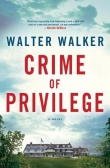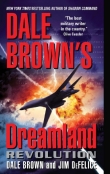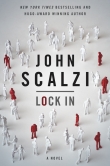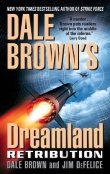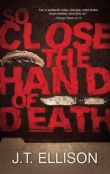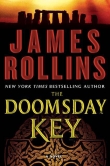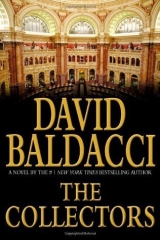
Текст книги "The Collectors"
Автор книги: David Baldacci
сообщить о нарушении
Текущая страница: 11 (всего у книги 27 страниц)
Chapter 25
Roger Seagraves had discovered where Stone lived and had sent men to the cottage when it was empty. They’d searched the cottage thoroughly, leaving no sign that they had been there. And most important, they had left with Stone’s fingerprints, taken from a glass and a second off the kitchen countertop.
Seagraves had run the fingerprints through the CIA’s general database, finding nothing. Using a password he’d stolen from a fellow employee, he tried a highly restricted database. Access was granted, and he placed the print in the hopper. A minute later this led him to Subdirectory 666, one that he was certainly well acquainted with, although his search request for Stone’s prints came back with “access denied.” Seagraves was familiar with Subdirectory 666 because it was where his own personnel history was kept, or at least the sort of “personnel” he used to be. He had often laughed at the “666” label, thinking it rather cheeky, though accurate nonetheless.
Seagraves exited the computer system and pondered this development. Stone had worked for the CIA, judging from his age, a long time ago. He had probably been an “eliminator” because the Triple Six classification was never given to those who pushed a pencil or pressed computer keys for the Agency. At present, Seagraves didn’t quite know how to take this discovery. He’d since learned that Stone’s librarian friend had been given the task of selling DeHaven’s book collection. Unfortunately, his men’s pursuit of Stone had raised the man’s suspicions. And a Triple Six man was born with inherent paranoia; that was just one of the many qualifications for the job.
Should I kill him now? Or would that dig the hole even deeper? Seagraves eventually decided to forgo that lethal step. He would always have that option later. Hell, I’ll do it myself. One Triple Six to another. Young versus old, and young always won that battle. You get to live, Oliver Stone. For now.
But he would have to do something about the man. And there was no time like the present.
• • •
Two days after their last visit to DeHaven’s house Stone and Reuben rode on the latter’s motorcycle to a rare book shop in Old Town Alexandria. The name of the shop was in Latin, and translated meant “Book of Four Sentences.” Caleb had an ownership share in the place, which had once been named Doug’s Books, until Caleb’s brilliant idea to go completely upscale in the very affluent area. Stone was not here because he wanted to look at more old books. He kept some items at the shop that he needed to consult.
The owner of the shop, the aforementioned Doug, who now went by the more formal “Douglas,” allowed Stone unfettered access to his hiding place. This was so because Douglas was terrified of Oliver Stone, a man who’d been described to him by Caleb (at Stone’s prompting) as a homicidal maniac walking free solely on a legal technicality.
Stone’s secret room was in the basement behind a false wall that was opened by pulling a wire hanging in an adjacent fireplace. A former priest’s hole in the ancient building, it now contained many items from Stone’s past life, plus a collection of his journals filled with cuttings from newspapers and magazines.
With Reuben’s help he found and pulled several of these journals and took them with him. Reuben dropped him off at his cottage in the cemetery.
“Keep a close lookout, Oliver,” Reuben warned. “If that little dipshit Behan is involved in this, he’s got plenty of muscle and connections behind him.”
Stone assured him that he would be careful, said good–bye and stepped inside the cottage. He brewed some strong coffee, settled at his desk and started going over the journals. The stories he’d selected dealt with the assassination of the Speaker of the House, Robert “Bob” Bradley. And also the nearly simultaneous destruction of his home, an event that only the most naive could’ve thought was a coincidence. Yet there seemed to be no connection between Bradley’s obvious murder allegedly at the hands of a domestic terrorist group calling itself Americans Against 1984 and Jonathan DeHaven’s seemingly innocent death. The FBI had received a note from the group which said that Bradley had been killed as a first step in the war against the federal government. The terrorists promised more attacks, and security in Washington had been heightened in response.
As he turned the pages of his journal, something nagged at Stone, but he couldn’t quite pin it down. Bradley had been Speaker for a short period, after a political shake–up that had seen the incumbent Speaker and the majority leader both convicted of selling influence and laundering political campaign funds. Normally, the Speaker position would have followed party leadership lines, but with the top two men in jail, extraordinary measures were called for. And Bob Bradley, a powerful committee chairman with an impeccable reputation far removed from the tainted leadership ladder of his party, had been the political Moses buttonholed to lead his people out of this nasty thicket of impropriety.
He’d started by promising an ethical cleanup in the House of Representatives and an end to partisan politics. Many had promised that, and few if any had delivered on that pledge, yet it was thought that if anyone could do it, Bob Bradley could.
Stone turned to another journal and another story. This one dealt with Cornelius Behan, recounting how he had come to this country with no money in his pocket and built an international conglomerate from nothing but his own sweat and nerve. Defense contractors had the reputation, often well deserved, of playing fast and loose with ethical rules. Paying off congressmen for political favors was one of the oldest games played in Washington, and the tank and plane builders played it as well as anyone.
Stone finished reading the story on Behan, which detailed two enormous and recent wins for his business. One was from the Pentagon for a new generation conventional missile system and the other to build a massive new bunker for the Congress outside of Washington for use in case of a cataclysmic attack. While some cynics might argue that the best thing that could happen to the country in case of such a catastrophe would be the elimination of that august body, Stone supposed the country needed some continuity of government.
Each of these contracts was worth billions, and Behan had won them both. As the article explained, he had outflanked his opponents at every critical juncture. “It was as though he could read their minds,” the reporter had written. Stone didn’t believe in mind readers, but having been a spy as a young man, he did believe in stealing secrets.
Stone leaned back in his chair and sipped his coffee. If Bradley’s predecessor had been in Behan’s pocket and Bradley had promised a crackdown on corruption, it might be worth it to take the new crusader out. There was no guarantee that Bradley’s successor would be any more cooperative to folks like Behan, but there was also the factor of intimidation. Would a new Speaker be inclined to go full bore ahead with Bradley’s pledge to bring ethics back when that same promise might have led to his colleague’s violent death? The terrorist group could simply be a smoke screen, and an unverifiable one at that.
Stone had initially started thinking about Bradley’s death because there was only one connection he could see between the man’s murder and DeHaven’s. And that connection was Cornelius Behan, a man who’d made billions by selling myriad things that killed lots of people, all in the name of peace.
Was it Behan’s men in the D.C. Public Works van? Could they have somehow caused the Secret Service to retreat like that? Or was it another agency, working closely with Behan, that had taken on the role of running interference for him? People had debated for decades the existence of the military–industrial complex. Stone had never wondered about it. He had participated in that complex for years. If it was anything like it was thirty years ago, it was a potent force to be reckoned with. It was also a force that would not hesitate to eliminate people who got in the way. Stone also knew this from personal experience. After all, he used to be one of the “eliminators.”
He would have Milton find out as much as possible about Bradley and Behan. Milton could get into databases that he had no business being on; yet those were always the most interesting ones. Stone would go to Bradley’s demolished home to see if anything turned up there. And he needed to return to Jonathan DeHaven’s house because he had to look through that telescope again, and not because he was anxious to be titillated by another episode of Behan’s sex show. No, there was something very obvious that he had completely overlooked.
A sudden chill hit him, and he rose to start a fire. Then he stopped and rubbed his skin. He was cold, very cold. What the hell had the woman said? He struggled to recall her exact words. “Your temperature is coming back up.” Yes, that’s what the nurse taking care of Caleb had said. It had struck him as odd, because in a hospital one would normally hear that you were recovering if your temperature were coming down. But she had said he was almost up to normal, he was certain of it.
Stone grew very excited. Something was finally starting to make sense. He grabbed his cell phone to call the others but then stopped as he gazed out the window. From here he had a direct line of sight onto the street that bordered the cemetery. A white D.C. Public Works van was parked there. He could see it clearly under the streetlight.
Stone immediately drew away from the window. He called Reuben but it didn’t go through. He looked at his cell phone. He had no power bars. Yet there was always a strong signal in this area. He glanced out the window. Jammers. He tried his hard–line phone. It was dead.
He grabbed his coat and hurried to the back door. He would clamber over the rear fence and make his way through a labyrinth of Georgetown streets to an abandoned dwelling he occasionally used as a safe house. He cautiously opened the door and stepped outside. The fence was in sight.
The shot to his chest stopped him cold and dropped Stone to his knees. Already lapsing into unconsciousness, Stone looked over at the man standing there, wearing a black hood and holding the gun with both hands. It seemed to Stone that the man smiled even as his victim fell to the hard ground and lay still.
Chapter 26
It was the darkness of interrogation. Stone recognized this as soon as he awoke. It was so black that not only could Stone not see any part of his body, but it seemed as though he had no body. He was barefoot, painfully thrust up on his tiptoes, and his hands were bound over his head. The place he was in was very cold. These places were always cold because cold wore you down faster than heat. He could sense that not only was he shoeless, he was also naked.
The voice called out from the blackness. “Awake?”
Stone nodded.
“Say it,” the voice commanded.
“Awake,” Stone answered. He would only give them the minimum, nothing more. He had been through this before, albeit three decades ago when a mission had gone awry and he had found himself a prisoner in a land where no American would ever want to be held captive.
“Name?”
This was exactly what he’d been dreading.
“Oliver Stone.”
Something hard hit him on the back of the head, momentarily stunning him.
“Name?”
“Oliver Stone,” he said slowly, wondering if the blow had cracked his skull.
“Okay for now, Oliver. DeHaven?” the voice said.
“Who?”
Now Stone could feel something grasping his leg. He tried to kick out, but then realized his legs were pinned. The thing was crawling snakelike up his right leg. He took a deep breath and tried to fight the panic. It couldn’t be a snake; they were just simulating it, he reasoned. Then whatever it was started to nudge Stone’s flesh, not bite, but the pressure was growing heavier. God, it felt like a damn snake. Maybe a boa? In the total darkness even Stone’s hardened nerves began to unravel.
“DeHaven?” the voice said again.
“What do you want to know?”
The pressure eased a bit, but it was still there as not–so–subtle intimidation.
“How did he die?”
“I don’t know.”
The pressure instantly intensified. It was now wrapping itself around Stone’s belly. He was finding it hard to take a full breath. His arms and legs were aching, and his Achilles felt ready to pop from being forced to stand on tiptoe so long.
“I think he was murdered,” Stone gasped.
The pressure released a few notches. He grabbed a quick breath, his lungs expanding painfully.
“How?”
Stone desperately tried to think of what to say. He had no idea who these people were and didn’t want to give too much away. When he didn’t say anything, the pressure fell away completely. Bewildered, he relaxed. He should have known better.
He fell to the floor as his bindings were released. He felt strong, gloved hands seize him. When he instinctively swung his arm out, it struck something hard; it was glass and metal, up near where his captor’s face would be. They have night–vision equipment.
Stone was hoisted and carried somewhere. An instant later he was slammed down on a hard object, like a long board, and secured there. Then he was being tipped back and his face covered with cellophane. The water hit him hard, pushing the cellophane into his eyes, mouth and nose. He gagged. They were “water–boarding” him, a very effective torture technique. There were few things more terrifying than believing that you’re drowning; especially upside down in total darkness while bound tightly to a board.
Suddenly, the gusher stopped and the cellophane was ripped off. As soon as he let out his breath, his head was plunged completely into cold water. He gagged again and strained to break free. Stone’s heart was beating so fast he knew he would probably die of a heart attack before he did from drowning.
Then his head was pulled out from the water. He vomited, his retch covering his face.
“How?” the voice said calmly.
Yeah, the guy asking questions was always calm, Stone thought as he tried to shake the vomit out of his eyes. He was probably sitting in a nice warm room with a cup of coffee while I’m getting the shit kicked out of me.
“Suffocated,” he spat out. “Just like you’re doing to me, you prick!”
That got him another quick dunk. He’d done it on purpose, though, so the water would wash the puke off him. Stone had taken a quick breath before they plunged him in, and he came out in relatively decent shape.
“How?” the voice said.
“Not the halon 1301, something else.”
“What?”
“I don’t know yet.”
Stone felt himself being tipped back for another plunge. He frantically shouted, “But I can find out.”
The voice didn’t immediately answer. Stone took that as a good sign. Interrogators hated to be at a loss for words.
The voice said, “We looked at your journals. You were reading up on Bradley. Why?”
“Seemed too coincidental. His death and then DeHaven’s.”
“They have nothing in common.”
“You think so?”
Stone snatched a long breath, but they held him under so long this time he still almost drowned. He came out with his brain exploding from lack of oxygen, every limb quivering; his whole body was starting to shut down on him.
“What do you think they have in common?” the voice demanded.
“You’re one dunk from killing me, so if that’s your plan anyway, why don’t you just get it over with?” he said feebly. He braced for the tip but it didn’t come.
“What do you think they have in common?” the voice said again.
Stone took a shallow breath, which was all he could manage right now, and decided whether to answer or not. If it wasn’t what they wanted to hear, he was dead. But he was nearly dead as it was.
He mustered his energy and said, “Cornelius Behan.”
He braced for the last dunk. Instead, the voice said, “Why Behan?”
“Bradley was anticorruption. Behan won two major contracts under the old regime. Maybe Bradley found out something Behan didn’t want known. So he killed him, burned his house down and blamed it on a fictitious terrorist group.”
There was a long silence. All Stone could hear were the anguished smacks of his tortured heart. The sounds were terrifying, but at least he was still alive.
“DeHaven?”
“He’s Behan’s neighbor.”
“Is that it?” the voice said, clearly disappointed.
Stone felt himself being tipped back. “No, that’s not all! There was a telescope we found in DeHaven’s attic pointed at Behan’s house. DeHaven might have seen something he shouldn’t have. So he has to be killed too, but not like Bradley.”
“Why not?”
“People gunning for the Speaker wouldn’t be that surprising. But DeHaven’s a librarian and Behan’s his neighbor. It had to be made to look like an accident away from DeHaven’s and Behan’s homes. Otherwise, fingers might start pointing at Behan.”
Stone waited in silence, wondering if the answer had been the right one or not.
He lurched up as he felt the painful jab in his arm. A second later his eyes closed, and Oliver Stone let out a long breath and lay still.
From the corner of the room Roger Seagraves watched them carry Stone out. He was pretty tough for an old guy. Seagraves imagined that thirty years ago Stone might have been as good as he was. Now he at least knew that Stone suspected Cornelius Behan to be the man behind it all. And because of that, Oliver Stone would get to live another day.
Chapter 27
Annabelle’s hotel room overlooked Central Park, and on impulse she decided to take a walk in it. Her hairstyle and color had changed once again. She was now a brunet with short hair, parted on the side, a look that matched the passport photo Freddy had made for her. Her clothes were typical New York, meaning black and stylish. She rambled through the park trails hiding behind a hat and sunglasses. Several people she passed stared at her, perhaps thinking she was someone famous. Ironically, Annabelle had never sought fame. Her whole life she had clung to the comforting shadows of obscurity where a talented con could find professional traction.
She bought a soft pretzel from a street vendor and carried it back to her room, where she sat on the bed and looked through her travel papers. Leo and she had parted company at the airport in Newark. Freddy was on his way out of the country already. She hadn’t asked either man where they were going. She didn’t want to know.
After arriving in New York she’d contacted Tony. As promised, Annabelle had made arrangements for him to fly to Paris. After that, he was on his own, but with excellent if fake identification and travel documents and millions sitting in a readily accessible account. She’d given him one final warning: “Even though he never saw you, Bagger will know I needed some con really expert with computers, and you have that reputation. So lay low for a year or so out of the country. And do not flash the money around. Get a small place, dig in, learn the language, and lose yourself.”
Tony promised her that he would do as she advised.
“I’ll call and tell you where I end up.”
“No, you won’t,” she’d told him.
She still had three days before Bagger’s money was due back and he discovered he’d been conned. She would have given half the money back to be able to see his reaction. He would probably kill all of his IT and money guys first. Then he’d stalk through his casino with a pistol, popping off senior citizens playing the slots. Maybe a New Jersey SWAT team would swoop in and do the world a favor by putting the bastard out of his misery. Probably unrealistic, but she could always fantasize.
Her escape route would take her through eastern Europe and then Asia. That would last about a year. After that, it was on to the South Pacific, to a little island she’d discovered years ago and never been back to for fear of it not being as perfect the second time. Right now she’d be happy with almost perfect.
Her share of the take was currently parked in a series of offshore accounts. She’d live off the interest and investments the rest of her life, maybe occasionally dipping into the principal. She might even buy a boat, albeit a small one, and sail it herself. Not around the world; short excursions around a tropical cove would be just fine with her.
She had debated whether to send Bagger a note of triumph, but in the end decided such bravado was both unworthy of her and the con she’d pulled. Let him spend the rest of his life guessing. Paddy Conroy’s little girl wouldn’t be high on his list of usual suspects because she was certain Bagger didn’t even know Paddy had a daughter. Annabelle’s relationship with her father had been truly unique, and he had never held her out to the con world as his child. Leo and a few others they’d worked with had eventually discovered the truth, but that was all.
Yet this time her picture had been captured on numerous Pompeii casino cameras. And she knew Bagger would take those photos and run around the con world paying people or even torturing them to get an ID on her. Every con she knew would cheer what she’d done to Bagger. Yet there might be someone who looked at the photo and let her name slip if Bagger threatened enough. Well, she thought, let him come. He might find it a little harder to kill me than he thinks. It wasn’t the size of the dog in the fight, it was the size of the fight in the dog. Ironically, it wasn’t her father that had told her that; it was her mother.
Tammy Conroy, despite her criminal ways, had been a good woman, and a long–suffering wife to Paddy. She’d been a cocktail waitress before tying her life to the charming Irishman, who had an endless supply of funny yarns and could sing any tune in a voice you’d want to keep listening to. Paddy Conroy dominated any room he was in. Perhaps that was why his potential as a con had never been fully realized. The best cons, you never even knew they were there. Paddy apparently didn’t care, believing that his Irish luck, pluck and smile would save him every time. And it had, mostly. But it hadn’t saved Tammy Conroy.
Jerry Bagger had personally put a bullet into her brain when she wouldn’t rat out her husband. Paddy certainly hadn’t returned his wife’s loyalty. He’d fled when Bagger started to close in. Annabelle couldn’t even attend her mother’s funeral because Bagger and his men were at the cemetery waiting for someone to show up. That was years ago, and Bagger was probably still looking for her father. Over ten lousy grand, when the man spent more on his suits than that. Yet Annabelle knew it ultimately wasn’t about the money. It was about respect. And the only way you kept respect in Bagger’s world was by doling out five licks for every one you took. And whether somebody stole ten grand or 10 million of his money, Bagger would hurt that person if he could get his hands on him. That’s why when Annabelle ratted out the cons at the Pompeii, she had also called the police. With cops on the premises Bagger couldn’t break any knees. If the cons were smart, they’d clear out fast after they’d done their time or paid their fines.
Bagger might have been a walking caricature of a casino chieftain in a bad mob film, but one thing that wasn’t phony or funny about the guy was the easy manner in which he employed violence. If you conned other casinos, you went to jail. That was not how Bagger operated. He was a throwback to the days in Vegas when the way to deal with a pesky con was to first break the knees and then the head. His utter failure to bring his methods into modern times had led to his banishment from Sin City. While he hadn’t completely cleaned up his act in Atlantic City, he had gotten far more discreet about it.
With all that, in Tammy Conroy’s case, a ten–grand con wouldn’t have ordinarily led to death. But it wasn’t a simple case, because her father and Bagger had a long running war. Personally, Paddy kept out of Bagger’s casinos, but he sent waves of teams in to do the con work for him, including, finally, his then teenage daughter and a much younger Leo. That almost led them to being fish food in the ocean the last time they visited Atlantic City. Yet over the years Bagger finally made the connection with Paddy and his casino’s troubles. He eventually showed up on Paddy’s doorstep one night far away from Jersey. But Paddy wasn’t there. Some said he had a warning and cleared out. If so, he forgot to let his wife in on it.
There was no evidence linking Bagger to the murder, of course, and he’d had a million alibis, so no charges were ever filed in the case. However, some veteran cons with inside knowledge that Annabelle had talked to were absolutely certain as to what had happened. Yet even if they’d seen the deed themselves, they would never have testified against Bagger.
Having him so close to her over the last week, Annabelle found herself thinking about putting a gun against his forehead and firing. That would have evened one old score, but the forfeit of her life would’ve been the price. No, this way was much better. Her father had never liked the long cons, arguing that it took too much time and had too many potential pitfalls. Yet Tammy Conroy would have truly appreciated the artistry and the execution of this one. And if somehow her mother had made it to heaven, she hoped the woman would take a peek from up high when Jerry Bagger discovered he’d been duped into a wild, crafty ride with an admission price of 40 million bucks.
She picked up the TV remote and channel–surfed as she ate her pretzel. The news was the same as always, all bad. More soldiers killed, more people starving to death, more people blowing themselves and others up in the name of God. Done with TV, she picked up the newspaper. Old habits died hard, and more than once she found herself looking at stories and wondering how to spin the details into a successful, creative con. That was over now, she told herself. Nailing Bagger was the pinnacle of her career; there was nowhere to go except down.
The last article she read caused her to sit up so fast she spilled her pretzel and mustard on the bed. She stared wide–eyed at the small, grainy photo that accompanied the back–page story. It was a short tribute to a distinguished scholar and man of letters. There was no cause given for the death of Jonathan DeHaven, only that he had died suddenly while at work at the Library of Congress. Though he’d died some time ago, funeral arrangements were just now complete and burial was set for the next day in D.C. Annabelle had no way of knowing that the delay had been caused by the medical examiner’s inability to find a cause of death. However, with no suspicious circumstances uncovered, the case had been set down to natural causes and the body released to the funeral home.
Annabelle grabbed her bag and started stuffing clothes in it. Her travel plans had just been changed. She was flying to Washington. To say good–bye to her ex–husband, Jonathan DeHaven, the only man who’d ever truly captured her heart.
